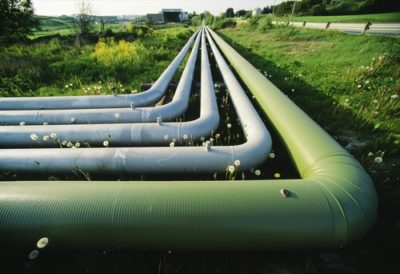The NE Pipeline Debate Rages On
July 24, 2018
The hotly contested debate over whether New England needs a new pipeline infrastructure raged on at the Senate Energy and Natural Resources Committee last week. At the committee, Joe Kelliher, former chairman of the Federal Energy Regulatory Commission (FERC) and now executive vice president at NextEra Energy, questioned the need for a new pipeline. Kelliher argued that the pipeline system is adequate for the whole year with the exception of 12 days (when the weather is coldest). As such, pipeline projects are not being built due to a lack of market support. For Kelliher, there is not enough demand for a 12-day pipeline.

Instead of building new pipeline capacity, Kelliher proposed that dual fuel is a better economic decision: keeping dual fuel generators on the system can help in periods of limited natural gas supply. Although NextEra has an interest in dual fuel, ISO-NE, the region’s grid operator, agrees that dual fuel is a solution to the problem. It has done recent analysis suggesting that dual fuel is one way to boost reliability on the coldest days of the year. Dual fuel generators that can keep diesel or fuel oil on-site may solve the problem; however, it should be noted that some New England states oppose them because of their carbon emissions. In addition to those who favor dual fuel, other opponents of a new pipeline oppose the measure for environmental reasons.
Proponents of a new pipeline, on the contrary, suggest that insufficient pipeline capacity in New England makes it difficult and expensive for generators to get fuel on cold winter days. They say that more pipeline capacity would alleviate some of this pressure by lowering costs and boosting reliability. And these proponents of a new pipeline believe they have found a new convert: Paul Hibbard, the energy analyst who co-authored a 2015 report for Attorney General Maura Healy that appeared to suggest New England did not need a new pipeline. At a recent conference hosted by the New England Power Pool (NEPOOL), Hibbard gave a presentation which noted the immense challenge New England faces in meeting its energy needs in the winter. Though Hibbard himself says that his views have not changed much, his presentation at least highlights the energy difficulties the region has.
If the approval and subsequent denial of the Northern Pass pipeline this past winter are any indication, the hotly contested debate over a new pipeline in New England will not likely fade soon. The debate, moreover, illustrates the urgency of a reliable system in the region.
